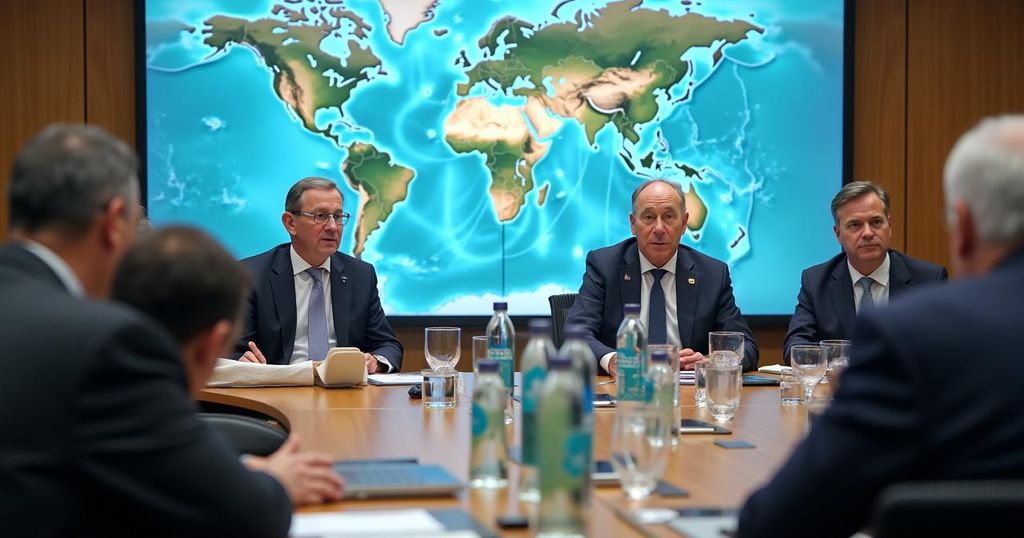Leaders at COP29 in Azerbaijan indicate that, while addressing climate change could require trillions of dollars, a pragmatic expectation for funding exists within the range of hundreds of billions. Negotiators aim to establish a new financial target to replace the previous commitment of $100 billion per year for developing countries as they confront the significant impacts of climate change. With global temperatures on the rise and the need for urgent action growing, collaboration among countries remains essential to address these pressing issues.
Leaders from the upcoming COP29 United Nations climate summit in Azerbaijan have indicated that while the trillions of dollars needed to combat climate change may be ideal, a more realistic expectation for financing will be in the realm of hundreds of billions. As negotiators prepare for meetings in Baku next month, they aim to establish a new financial commitment to succeed the existing pledge from wealthy nations to provide $100 billion annually to assist developing countries in managing the impacts of climate change. During a crucial pre-COP29 meeting last week, it was acknowledged for the first time that the scale of financial needs required to tackle climate issues is indeed in the trillions, according to Yalchin Rafiyev, the chief negotiator for the COP29 presidency. However, he emphasized that the public sector’s actual mobilization efforts would likely result in a target set in the hundreds of billions rather than trillions. This issue is particularly pressing as developing countries grapple with the severe impacts of climate change, ranging from catastrophic hurricanes to extreme heat events. They assert a greater financial influx is essential not only to adapt to these changes but also to invest in sustainable energy projects to reduce their greenhouse gas emissions. Global temperature rises have reached approximately 1.3 degrees Celsius (2.3 degrees Fahrenheit) above pre-industrial levels, with 2024 poised to be the hottest year recorded. With scientific consensus indicating that the critical goal of limiting global warming to 1.5 degrees Celsius (2.7 degrees Fahrenheit) is increasingly elusive without significant financial contributions and collaborative action, the urgency of the situation cannot be overstated. At the Baku negotiations, over 100 world leaders are anticipated, including 61 presidents, 38 prime ministers, and 2 crown princes. This number is in stark contrast to the more than 160 world leaders who participated in the preceding climate summit held in Dubai last year.
Climate change has become an increasingly pressing global issue, with its far-reaching impacts being felt across all countries, particularly in developing nations that are often the most vulnerable. The need for substantial financial resources to address both the causes and consequences of climate change has led to a consensus that the financing requirements extend into the trillions. However, the realities of mobilizing these funds pose significant challenges, and negotiations at international summits such as COP29 seek to establish pragmatic financing goals that align with countries’ capabilities and commitments. The impending COP29 meeting aims to refine these financial targets and foster collaboration among nations to address climate change effectively, particularly in light of growing concerns about rising global temperatures and their associated risks.
In summary, while there is a noteworthy acknowledgment among climate leaders that trillions of dollars are required to combat climate change effectively, the consensus heading into COP29 leans toward an achievable target in the hundreds of billions from the public sector. With the alarming increase in global temperatures and the consequent need for immediate action, developing countries are calling for more financial support to adapt and mitigate the effects of climate change. The upcoming negotiations in Baku represent a critical juncture in the ongoing efforts to unite nations towards common goals and practical solutions for the climate crisis.
Original Source: kfgo.com







